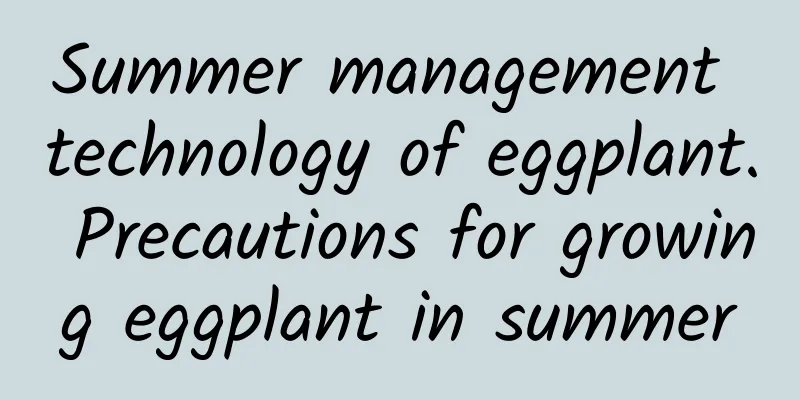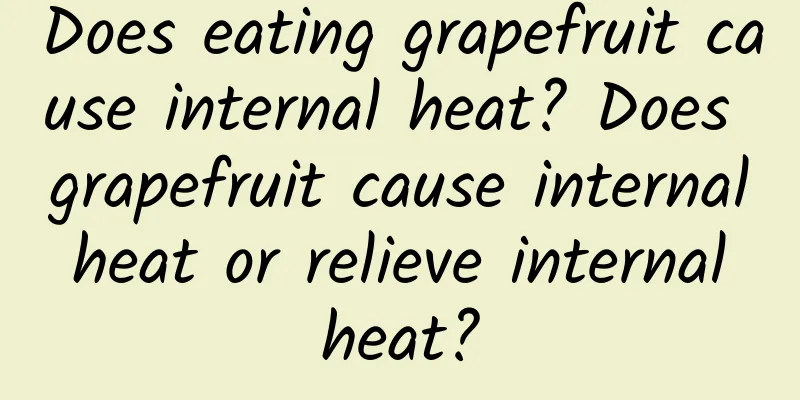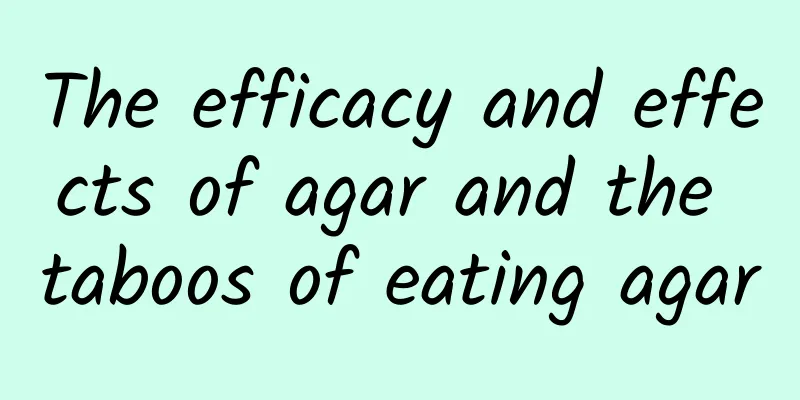Summer management technology of eggplant. Precautions for growing eggplant in summer

|
What issues do we need to pay attention to when growing eggplants in summer? Today I will give you a detailed introduction: Proper water controlFirst of all, in terms of cultivation conditions, we should try to choose sandy loam with higher terrain, and keep the soil moist to ensure the normal growth of eggplant. When the soil is insufficiently hydrated, the plant will grow slowly and cause flowers and fruits to fall. Therefore, when the roots are fixed, we should water them enough to make the roots grow quickly. We should also water them again before harvest to promote the rapid expansion of the fruits. In the middle growth stage, just keep the soil moist. Reasonable fertilizationEggplant has a long growing period, so it is important to apply heavy base fertilizer and timely topdressing. Eggplant requires a large amount of nitrogen fertilizer, but it should not be applied too much in the hot season. "Many vegetable farmers will combine the topdressing of ammonia fertilizer with irrigation. In fact, this method is not ideal in the hot season." Zou Zhirong said that because the high temperature will not only cause the volatilization of ammonia fertilizer, but also may cause ammonia poisoning in eggplant, so it is recommended to use trenching. "Eggplant has a large leaf surface, so it is recommended to apply foliar topdressing when necessary. Potassium dihydrogen phosphate has a good effect, but you must pay attention to controlling the concentration." Timely prevention and control of pests and diseasesIn the hot and humid summer, eggplant diseases and insect pests are serious, especially Verticillium wilt and cotton blight. Verticillium wilt, commonly known as "half-madness", is one of the main diseases of open-field eggplant. Zou Zhirong said that the most direct way to treat Verticillium wilt is to use Torubbam as the rootstock in the seedling stage and adopt the cleft grafting method to solve it. For plants that have already been infected, 800-1000 times of 77% methoxyfenozide wettable powder can be used for root irrigation, generally once every 10 days, and continuous prevention and control for 2-3 times is enough. Of course, the plots with particularly serious diseases should be pulled out in time, and quicklime should be spread on the diseased plants after they are pulled out for sterilization. Eggplant blight is also known as "rotten eggplant". This disease mainly harms fruits. Fruits near the ground are infected first and then gradually spread upward. Therefore, it is necessary to do a good job of field drainage to ensure that there is no water accumulation after rain, and remove diseased leaves and fruits in time to reduce infection. It is also necessary to strengthen intertillage, increase the application of phosphorus and potassium fertilizers, and improve the disease resistance of plants. Use 69% Anke manganese zinc wettable powder in the early stage of the disease, and pay attention to spraying more on the ground, stem base and branches and leaves, which is conducive to improving the prevention effect. |
<<: What is eggplant virus disease? How to prevent and control eggplant virus disease
>>: Eggplant apple juice production steps
Recommend
The efficacy and function of red bean and mung bean soup
People have drunk red bean soup and mung bean sou...
Cinnamon and chestnut porridge
Perhaps you don’t know much about Guili 753 porri...
How is Albania Screen? Albania Screen reviews and website information
What is Albania Screen? Albania Screen is Albania&...
Benefits of eating apples for pregnant women
Apple is a common high-nutrition fruit in life. T...
How to successfully pickle jellyfish? How to pickle jellyfish
Jellyfish is a kind of aquatic product. Fresh jel...
The efficacy and function of Bamboo Leaf Green Wine The taboos of eating Bamboo Leaf Green Wine
Zhuyeqing wine is one of the famous traditional C...
How to eat perfumed pineapple How to eat perfumed pineapple without peeling it
Perfume pineapple is a precious variety of the pi...
How is Jordan Ali Bank? Jordan Ali Bank Reviews and Website Information
What is Jordan Ahli Bank? Jordan Ahli Bank is the ...
What is Granmafran like? Granmafran reviews and website information
What is Glamourflage? Glamourflage is a famous Aus...
The nutritional value of mustard seeds
Mustard seeds, also called green mustard seeds or...
The efficacy and function of star flower
Star flower is a beautiful ornamental plant. It i...
What is Dragon Beard Cake? Ingredients and steps for making Dragon Beard Cake
What is Dragon's Beard Pastry? Dragon's B...
What is the online version of the New Herald like? Reviews and website information of the online version of the New Herald
What is the online version of the New Herald? This...
The efficacy and function of purple sweet potato and the way to eat purple sweet potato
Purple sweet potato is a common dried fruit ingre...
The efficacy and function of taro stem
Taro stems are the rod-shaped parts of taro veget...









